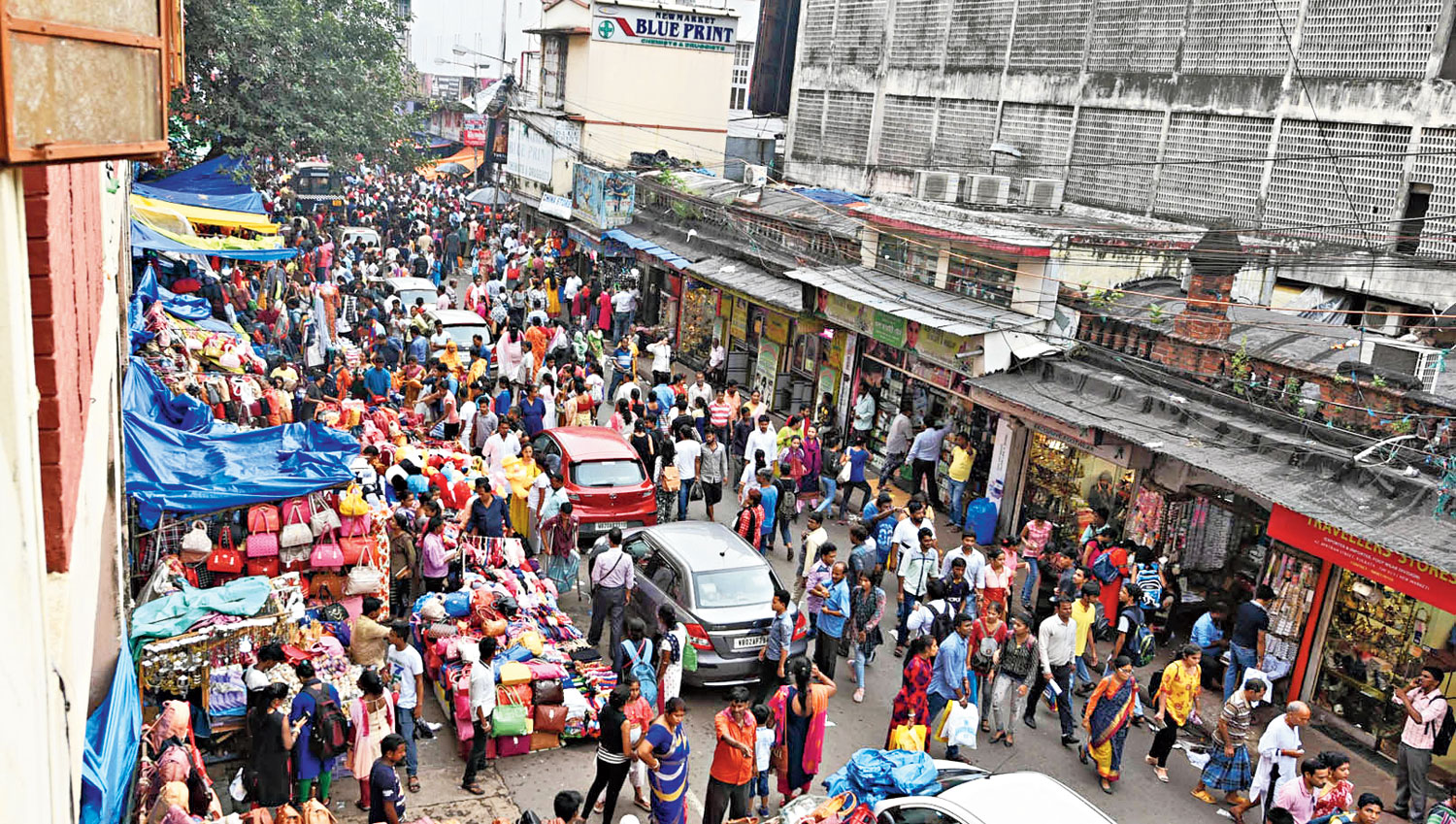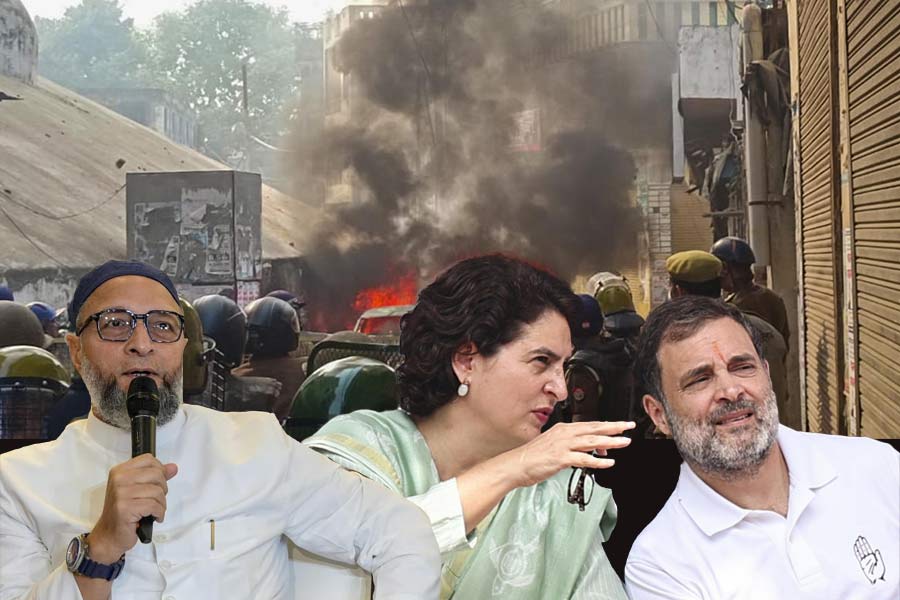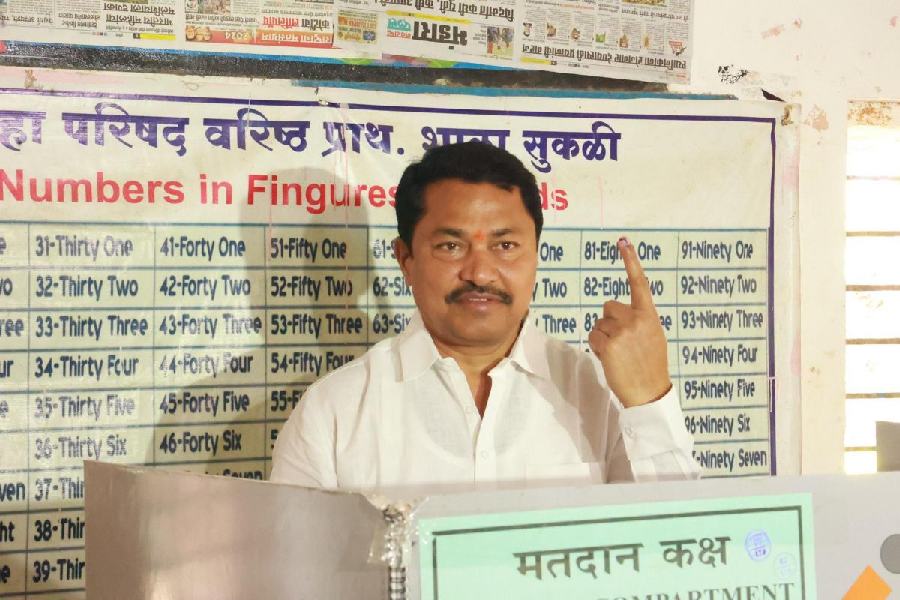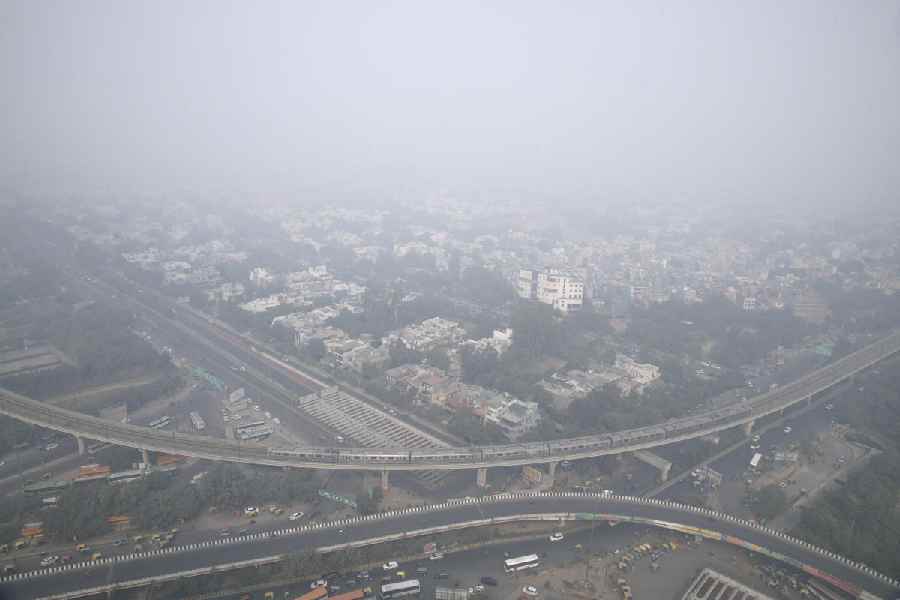The Calcutta Municipal Corporation can only request hawkers to remove plastic covers and would not use force on them, mayor Firhad Hakim said on Monday.
Hakim’s statement marks a shift from the stern approach he had taken after becoming mayor, when he had asked the hawkers to follow rules and later ordered the removal of all plastic sheets and tarpaulin covers from the stalls.
“We can only request. We cannot use bullets. We will not do that. I hope that repeated requests would create awareness and they would comply one day,” Hakim said when a journalist asked whether only requests would do because despite repeated pleas the hawkers have not removed the plastic sheets.
The mayor said he would “request” hawkers to remove the plastic sheets overhead now that the rainy season was over. He said the plastic sheets absorbed dust and contributed to air pollution, too.
“I would request all hawkers to remove the plastic sheets. The monsoon is over. The dust from road rises and remains stuck on the sheets. That in turn contributes to air pollution,” he said. “Besides, they are fire hazards, too.”
Hawkers across the city hang plastic sheets over their stalls. A fire that gutted some flats and two landmark sari shops at the Gariahat crossing in January had started from a hawker’s stall and spread rapidly because of the plastic sheets all around.
Hakim had then ordered the removal of plastic sheets, something that he repeated multiple times later. The corporation had conducted raids to remove the plastic sheets but the effort fizzled out soon.
With the arrival of the monsoon, plastic sheets returned everywhere.
Hakim said on Monday that the civic body would give steel stalls to hawkers who give a written undertaking that they would remove their current stalls and occupy only the space allotted for their new stall. “The hawkers have to pay one-third of the cost,” he said.
The state had earlier framed rules for hawkers that were struck down by a court when hawkers’ organisations challenged the composition of the committee that framed the rules. The rules said hawkers could not occupy more than one-third width of a pavement and could not sit on a road. But across the city, more than half of the pavements have been taken over by hawkers.











